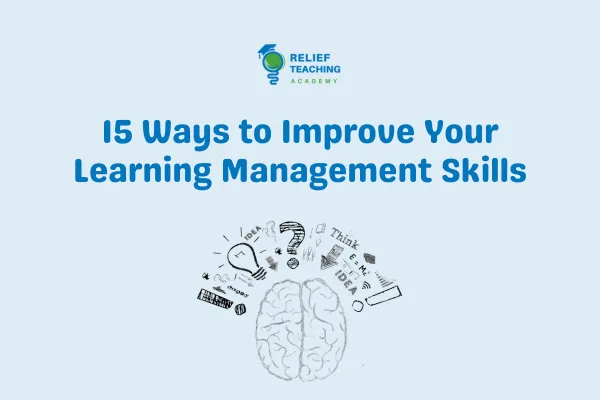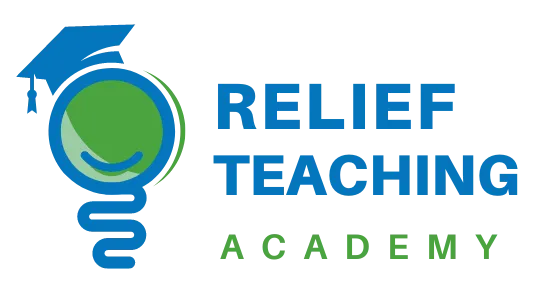Latest Academy Blogs
Select article category or search for specific article:

15 Ways to Improve Your Learning Management Skills
The biggest challenge facing teaching is that LEARNING must occur.
Being the best teacher in the world is meaningless unless kids actually learn. Just like the doctor who quoted “The surgery was a success but the patient died.” Teaching can not be achieved unless someone has learned as a result of your input.
#1 Make sure the MAIN thing is the main THING –
Always keep focused on the MAIN outcome of your lesson. This should be clearly established in your own mind well before you start the lesson. Write the answer to this question somewhere in your diary, “At the end of this lesson I want kids to...”
The value of being a relief teacher is that you don’t have to use the current jargon. Just use plain English to answer this question.
If you want children to
write good sentences or publish a story or learn how to use capital letters or find x in an equation.
then make certain all
your language, all your praise and all your effort clearly focuses on this goal.
Don’t make a big deal about anything else such as handwriting/bookwork. Certainly, make passing comments as needed but don’t dwell.
#2 Keep your language supportive and corrective –
Support the outcome by keeping the kids focused on the learning. You should be reinforcing all during the lesson, “This is what you are learning.”
While patrolling the room, always mention the outcomes you want to achieve like, “... those adverbs are descriptive and really add meaning to your sentences...”
#3 Don’t give out all the information - every time –
Some time kids want to explore options to get information. Give out books, computer access and/or websites for students to search.
Show the students how to use common search engines like Google. Make topics broad enough to allow students to have options in their interpretations.
#4 Consider group work as an option –
There is no doubt that group work is the chatty option. Having kids facing other kids is a sure fire bet to start a discussion. But if discussion is important to your lesson, then perhaps group work is a great option.
Group work has the risk of bombing. Kids can become more difficult to bring back on task so have an escape plan if group work looks like it is failing.
(Relief teachers are known to be great pragmatists anyway.)
However, don’t use failure language. Avoid critical comments like, “Well that was a mess - back to rows.” Consider language that is more positive and developmental.
“OK, Now let’s move to the next phase of the lesson. Thank you for moving your chairs quietly back to rows. Now get ready to listen to the next activity.”
The most difficult thing in group work, for you as a relief teacher, is that it is protocol to return the room to the condition in which it was found.
Group work is not to be confused with collaborative learning. See
#5 Investigations are powerful learning opportunities –
Investigations are those activities avoided by most relief teachers because they are usually difficult to organise on the spot. So... be organised for an activity before you arrive.
Kids get a lot of value out of learning investigations and part from the setting up; they are generally quite easy to manage - probably because the kids, even the ratbags, are clearly focused.
If you haven’t tried investigations in a classroom, try an easy one first.
#6 Allow time to THINK –
Students need time to THINK and process new concepts. Relief teachers, because they know content and skills, sometimes go on without giving kids the take up time needed to understand a concept. Sometimes relief teachers talk too fast and pepper the students with questions and activities without giving them time to process. You know the old adage, “Stop and smell the roses!” That is also true in the classroom.
When you have taught a new skill, concept or strategy, simply stop. Watch the class as they process what has been covered. When you need to ask a question, simply pause before expecting an answer. Some students just need time to:
process and understand the question;
retrieve the necessary information and then (finally)
formulate a response
#7 Be pragmatic –
different way than you expected. Sometimes that can be a good thing. So how do you know the difference?
Go back to 1
Is the main thing still the main thing? If not, then bring the lessons back and consider the matter another day.
Let’s say you want to explore the Voyage to the Moon. During the discussion the class is animated and excited about discussing the more general nature of space travel - can we get to the other universes, how can we travel at the light of speed, what do astronauts eat?
Now consider the MAIN thing. If you want to discuss the technology of Apollo 11, then move the discussion back. If your MAIN thing was the key issue of space, then go with the flow.
How exciting learning can be!
#8 Put learning into practice –
Kids, from the beginning of time, have always asked, “Why do we have to learn this?”
And it used to be so simple.
“You need to learn how to club dinosaurs so we can eat meat, Kronk.”
But now, the answer is much more complicated. Why do we have to do algebra? Why do we have to write about the Christmas/Easter holiday - yet again?
You probably need to be prepared and have answers ready. The best way not to be forced to answer the difficult question is to put it into practice. If you learn about FRICTION - show how it applies to rolling a ball on the carpet versus the floor.
If you learn about 3D shapes - make them.
Use shopping catalogues for math activities.
Explore probability by rolling dice.
#9 Allow TIME to TALK –
Allow students the time to talk. Honestly, everyone needs to be given a chance to talk. Put 30 adults together in a small room and tell them to be quiet. It is not a practical application of learning.
Talking is fundamental to how we learn and not allowing children that opportunity seems to me to be a little unfair. And quite frankly, it makes your job, as a relief teacher, that much harder.
The management issue is to keep the talk on the task at hand. Off task behaviour is not acceptable in a learning situation. Al, the more reason to teach that learning through talking is important.
#10 Share your learning process –
There is nothing more valuable to a student learner than to see a master at work. When learning a new concept, vocalise the thought process you use to interpret meaning.
Show your class how you develop meaning. Senior high school math teachers are great at this, particularly if they are introducing a new and difficult concept. They often think aloud and bring their class with them.
This is a great way, even for younger students, to see learning in action from a master. Vocalise your thought process to your class, show the kids how you create links to prior knowledge, and how you use your decoding skills.
You didn’t get where you are now because you are a slouch. Show off the techniques you use to develop understanding. In this situation, you are indeed, a role model to kids.
#11 Use an ADVANCE ORGANISER –
David Ausebel developed the theory of Advance Organisers in 1960. Essentially, he believed that if students were given a framework before the lessons, they would better be able to apply or understand the concept.
This could be as simple as displaying on a board what you are going to do during the lesson. I do the same with my program for the day.
There is considerable debate in educational forums about the intricacies of this strategy. I leave that to the academics.
All I know is that it works.
#12 Build your lessons –
Identify your introduction, the body of your lesson and your conclusion. Kids will respond to this structure. I know, you haven’t heard this since Uni days. Life was so much simpler then.
And now we have much more complex lesson structures.
And... I’m not sure we are any better at it. If you can identify these three elements, so can the kids. This is part that Advance Organiser stuff. See 11
This is what adds meaning to learning.
#13 Provide a FOCAL point in the classroom –
Have you ever been in a crowd and pointed skyward? Everybody looks skyward.
It is not much different in a class. Give the kids something at which to look. If you are studying water, have pictures of dams, if you are looking at Africa have pictures of lions, if you are studying film and drama have a picture of Pamela Stephenson.
Use the board as YOUR scribble pad and watch how the kids focus. This is the SCREEN generation. I’m sure some of these kids would sit at a screen saver if the computer ever had a chance to need it.
#14 Manage the interruptions –
Goodness knows the modern relief teacher (just like the modern teacher) has it tough and part of the problem is the constant stream of interruptions that occurs during the day. Learn the hierarchy of the school, to see what interruptions can be controlled. Start from the top. The boss, well, that goes without saying. Instructions must be followed then and there.
But others... respectfully request that the interruption occur outside your valued teaching and the kids’ valuable learning time. (And good luck with that!)
#15 Be visible in the classroom –
This has to be the first lesson on Learning Management 101. Why wouldn’t it be? learning occurs best when you interact with students and that only happens when students can see you.
I have seen all too often, a relief teacher anchored at the desk having already issued 30 worksheets left by the regular teacher.
Let’s face it. Learning isn’t going to happen.
Be visible - Let the students see you - better still, let the students see you work. How can you expect them to, if you don’t?
Be visible - Interact. Ask questions - check for understanding. Help - check for misunderstandings be visible - offer guidance if needed and encourage when not.
Want to learn all the 50 incredible tips to transform your classroom experience?
Click on this link now 👉 50 Effective Teaching Strategies for Casual Teachers

CLICK HERE to find out more about joining the Relief Teaching Academy
Subscribe to get up to date tips, strategies, resources and guidance on all things relief teaching.
Relief Teaching Academy is a service of EPC Capital Pty Ltd.
© Copyright 2023. EPC Capital Pty Ltd. All rights reserved.
Send us a message

